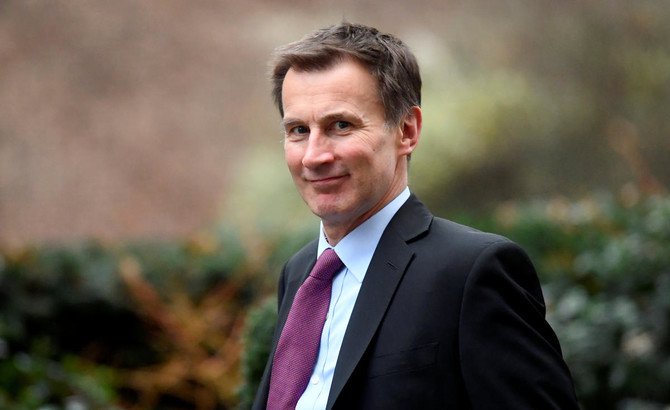Syria has no future under Bashar Assad but is stuck with the president due to Russian support, Britain’s top diplomat has said.
Jeremy Hunt, the UK foreign secretary, said that Assad is likely to remain in his position “for the short-term and possibly longer,” and called on Moscow to come forward with a solution.
“Assad … is a truly horrific man who has shown that he won’t hesitate to butcher his own people in order to prolong his hold on power. And what future would a country like Syria have with a leader like that?,” Hunt said in an interview with Asharq Al-Awsat newspaper.
“But the reality is because of Russian support, he is there and he is likely to stay for the short-term and possibly longer. It is for the Russians now to come forward with their solution because they have chosen to intervene in the way they have.”
Hunt said it was “impossible” for Syria to have a bright future with Assad still in power.
“This is a man who mercilessly gassed his own people in the most brutally possible way against all international norms, and the Russians chose to prop him up. So it is for Russia now to show they are going to create peace and stability in Syria,” he said.
Hunt added that the UK has “no plans” to reopen diplomatic relations with Syria.
The British official said the US withdrawal from eastern Syria should not take place in a way that harms “our allies like the SDF (Syrian Democratic Forces) in Syria who fought very bravely along Western troops for many years.”
Asked about Britain’s role following the US pullout from Syria, Hunt said: “There is no prospect of British troops going in to replace the American troops leaving, but of course we had discussions with the United States on an ongoing basis and when I was in Washington a couple of weeks ago about how we stabilize the situation in Syria.”
Hunt also spoke about the territorial defeat of Daesh in Syria and Iraq — but cautioned that was not the same as crushing the mindset behind the terror group.
“We have not yet eliminated the cause of the Daesh movement which is so evil and so destructive and there is a lot more work left to do,” he said.
“It is very important that the global coalition does not hang its hat up and say we are done now, because if we do that there is a very good chance that Daesh will be back.”
“There (is) some evidence now in parts of Iraq that (Daesh is) regrouping and regathering strength.”
On Yemen, Hunt underlined the need for a comprehensive solution that would prevent Iran from using the country as a base to destabilize neighboring states.
Asked about his recent participation in the Warsaw Conference on the Middle East, the British foreign secretary said that the meetings went beyond the Iranian role in the region to touch on reshaping alliances in the Middle East.
He added that he attended a “very productive meeting about Yemen,” in the presence of US Secretary of State Mike Pompeo, Saudi Foreign Minister Adel Al-Jubeir and his UAE counterpart Sheikh Abdullah bin Zayed.
“We spent a long time talking about what is necessary to get peace over the line in Yemen,” he said.
In this regard, Hunt affirmed that a comprehensive settlement in Yemen could only be reached through “a government of national unity in which the Houthis have a stake in which the security of all communities in Yemen is assured, in which Iran is no longer using Yemen as a base to destabilize Yemen’s neighbors, and in which we can end the terrible humanitarian crisis which is the worst humanitarian crisis in the world right now.”
According to Hunt, the problem lies in how to achieve a final solution and to build trust, in particular the importance of implementing the Stockholm Agreement and withdrawal from the city of Hodeidah “so that we can open up the Red Sea Mills,” where 51,000 tones of UN wheat is stored.
He noted that he held a lengthy discussion with Iranian Foreign Minister Mohammed Javad Zarif about this issue.
According to Hunt, he was told by Zarif that Iran wants to play its part in finding a solution. “We took those commitments at face value but we do now need to see that translated into the Houthis leaving the Port of Hodeideh.”
“All of us know that if that does not happen soon, we are going to see a return to hostilities and that would be an absolute tragedy to the people of Yemen,” Hunt said.
Responsibility for the information and views set out in this article lies entirely with the author.


